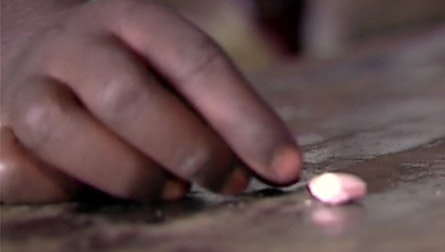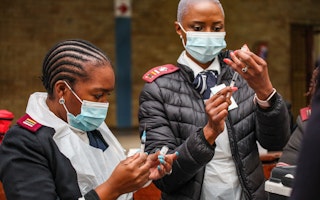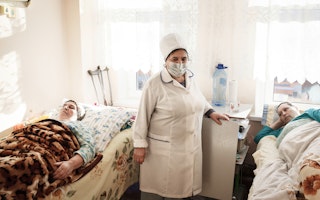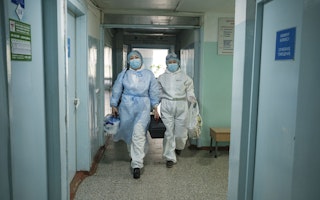Torching the Myths of Expensive Medicines
By Sebastian Krueger & Els Torreele

A Malawian man, weakened by AIDS, stammers. He is overwhelmed.
Doctors have just told him he will be among the first to receive newly affordable AIDS medicines. Given the previously high cost of these drugs, he could not have expected relief from his illness except through a death that would soon come.
Now, he says he will accept the new medicines “with all my heart.”
This is just one of the arresting scenes in the new documentary Fire in the Blood detailing the lives saved because AIDS activists brought down the global cost of AIDS drugs in the early 2000s. But despite this, today’s pricing structure of many essential medicines—just as then—shows no “heart.”
Patent protections allow for inflated monopoly pricing and keep generic drugs, which are cheaper, from going to market. Secret international trade deals impose the pharmaceutical companies’ high prices on foreign nations. And corporate lies about drug innovation fool people into believing that high prices are inevitable.
But Fire in the Blood asks us to see the successes of the struggle for affordable AIDS medicines as a rallying cry for action today.
The film features intellectual property activist Jamie Love from Knowledge Ecology International, a grantee of the Open Society Foundations. During the height of the AIDS crisis, he did not accept that AIDS drugs should be unaffordable. He and others kept digging until they found how little it could really cost to treat AIDS with generic ingredients and at-cost production—less than one dollar a day.
What astonished Love was that, because of corporate influence, no government or international body had tried or even seemed want to answer that question.
A panel discussion last week at Doctors Without Borders examined why this was so, and explained that people all over the world still cannot afford the medicines they need to survive—whether for hepatitis C, cancer, or tuberculosis. The film’s director, Dylan Mohan Gray, chastised the media for eagerly believing the myth that drug research and development justifies high drug pricing—even though it accounts for less than 4 cents of every dollar of revenue, and they spend magnitudes more on marketing.
Open Society’s Els Torreele, who heads our access to medicines work, sat on the panel and told a story from an unfamiliar side. With a background in biomedical research, she spoke passionately about the scientists she knows who feel shackled by their corporate employers.
These experts yearn to use their skills to develop new life-saving medicines, but their companies have them chasing non-innovative medicines, like redundant copies of fad drugs that are easy to market. Selling us drugs they can convince us we need but don’t is better for company shareholders.
And the situation at universities is not much better. Public research funding is often geared toward pharmaceutical company priorities instead of addressing public health needs.
This system is failing patients across the world.
An important first step to fixing this is to change the narrative about why our expensive medicines are expensive. Fire in the Blood is a vital reminder that this change is possible, and that we must win these same struggles of behalf of other live saving medicines.
For more information on the film, visit the Fire in the Blood website.
Until May 2016, Sebastian Krueger was the communications officer for the Open Society Public Health Program.
Until January 2017, Els Torreele was director for the access and accountability activities of the Open Society Public Health Program.


